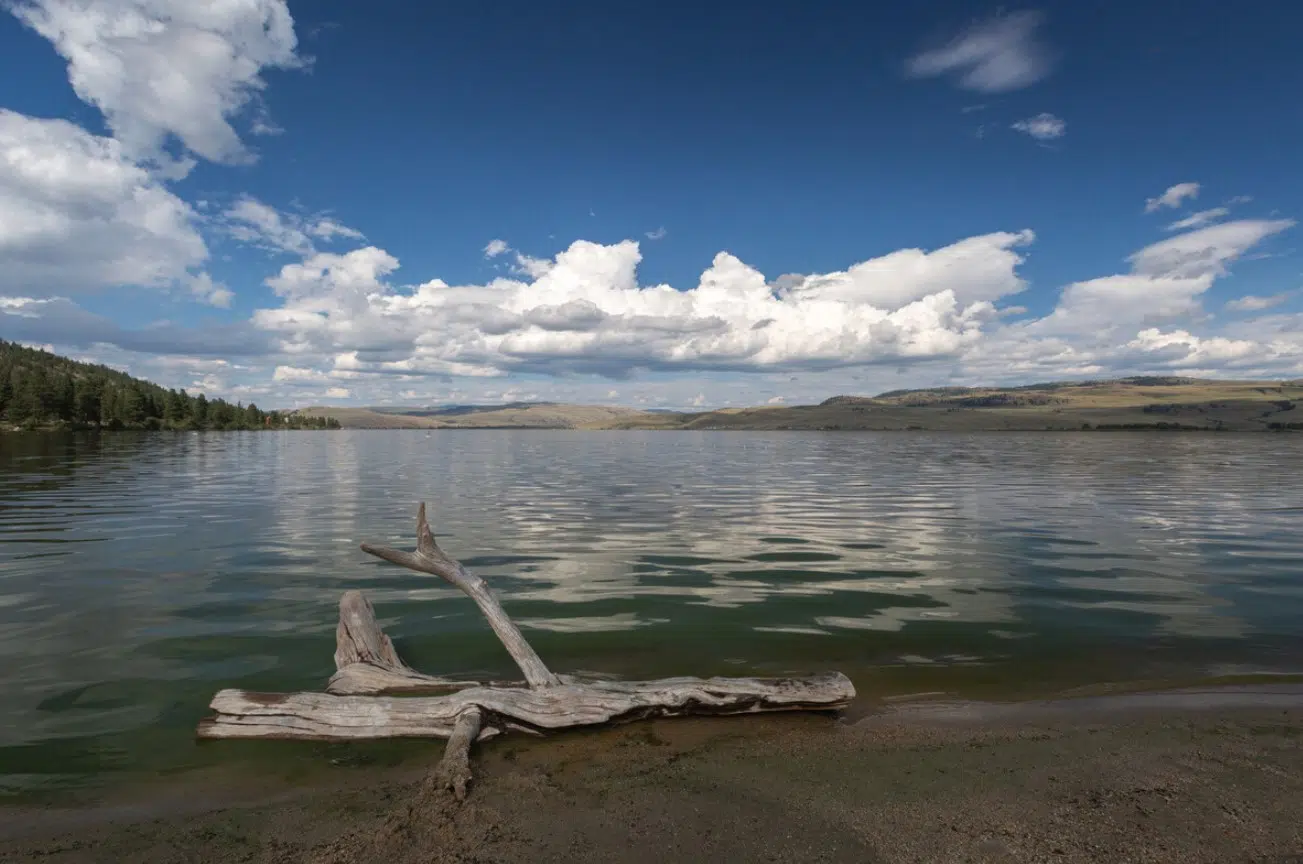
Nicola Lake (Photo via TNRD)
Interior Health has lifted a toxic algae bloom advisory for Nicola Lake near Merritt, just in time for the BC Day long weekend.
The closure order for the lake northeast of Merritt – which included Monck Provincial Park – was issued last month because of the presence of an “active toxin-producing cyanobacteria bloom.”
In a statement Friday, Aug. 4, Interior Health says recent water samples taken by BC Parks at Monck Provincial Park have tested negative for the presence of cyanobacterial toxin.
“Lake users should use caution if they see signs of an algae bloom. It is best to avoid contact with an algae bloom and if contact is made, rinse your body with clean water, Interior Health said.
It says the First Nations Health Authority continues to monitor the northeast side of Nicola Lake as well as Douglas and Chapperon lakes.
IH says while cyanobacteria, also known as blue-green algae, is a natural part of the aquatic environment, prolific growth can cause cyanobacteria blooms to form, resulting in water either looking or smelling bad.
“Cyanobacteria can also produce toxins called microcystins, which can be poisonous to people, pets or livestock,” IH added. “Beach users can be exposed to these toxins by accidentally drinking water that contains a bloom, or by getting it on their skin during recreational activities.”
You can find a list of all active beach closures online here.
For more information, on blue-green algae, go here. To report other algae blooms, go here.















